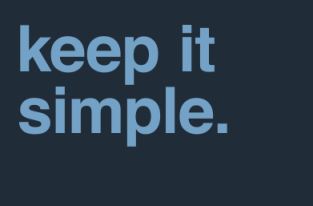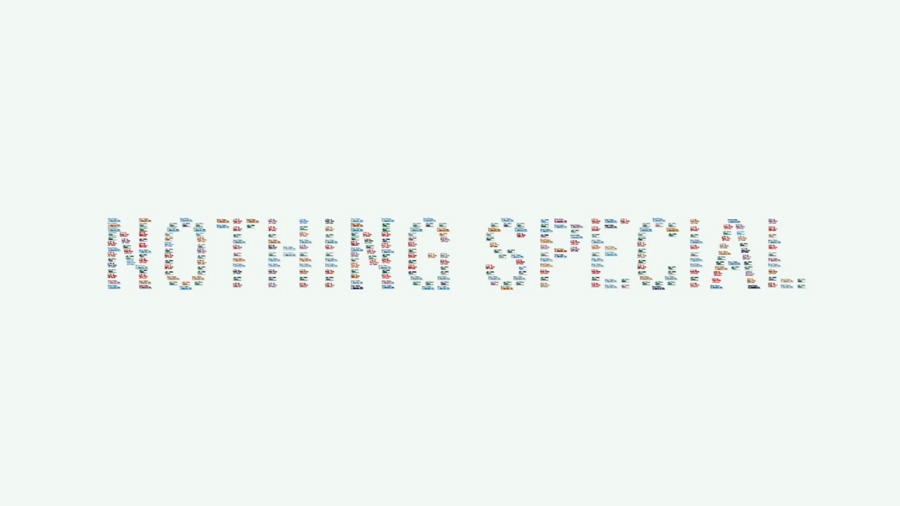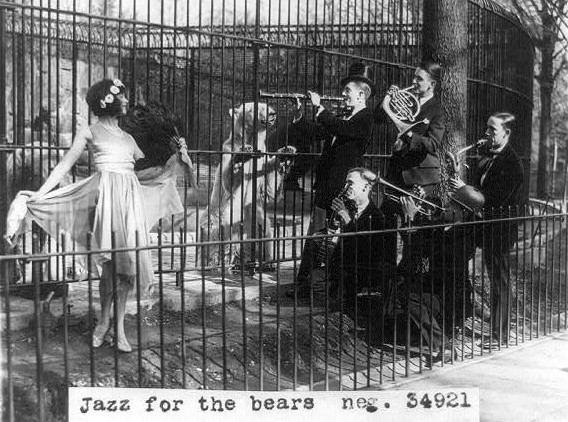Keeping things simple and tuning out folly
by Shane Parrish, Farnam Street
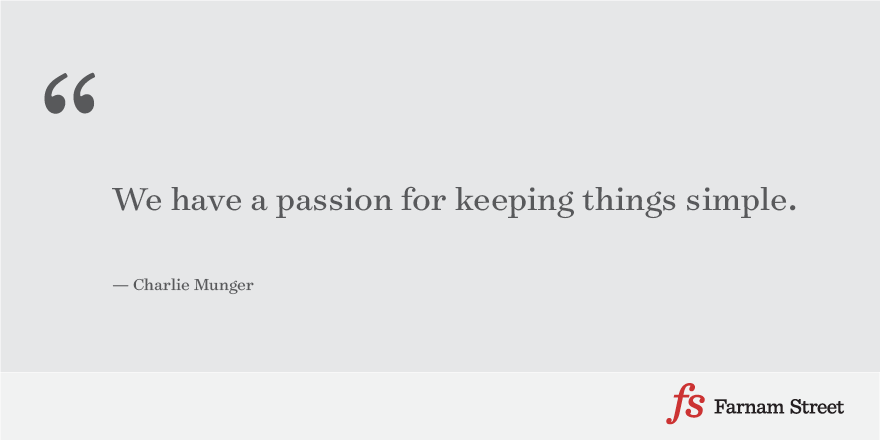
This reminds me of me of how Einstein sifted the essential from the non-essential. And this from Charlie Munger: The Complete Investor:
Peter Bevelin’s book Seeking Wisdom: From Darwin to Munger has a section on the importance of simplicity.
Bevelin advised: “Turn complicated problems into simple ones. Break down a problem into its components, but look at the problem holistically.” Keeping things as simple as possible, but no more so, is a constant theme in Munger’s public statements. In a joint letter to shareholders, Munger and Buffett once wrote: “Simplicity has a way of improving performance through enabling us to better understand what we are doing.”
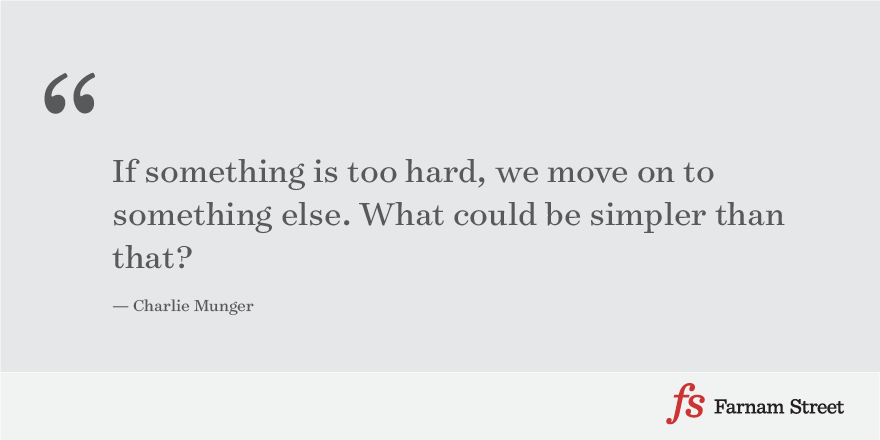
By focusing on finding decisions and bets that are easy, avoiding what is hard, and stripping away anything that is extraneous, Munger believes that an investor can make better decisions. By “tuning out folly” and swatting away unimportant things “so your mind isn’t cluttered with them … you’re better able to pick up a few sensible things to do,” said Munger. Focus enables both simplicity and clarity of thought, which in Munger’s view leads to a more positive investing result.
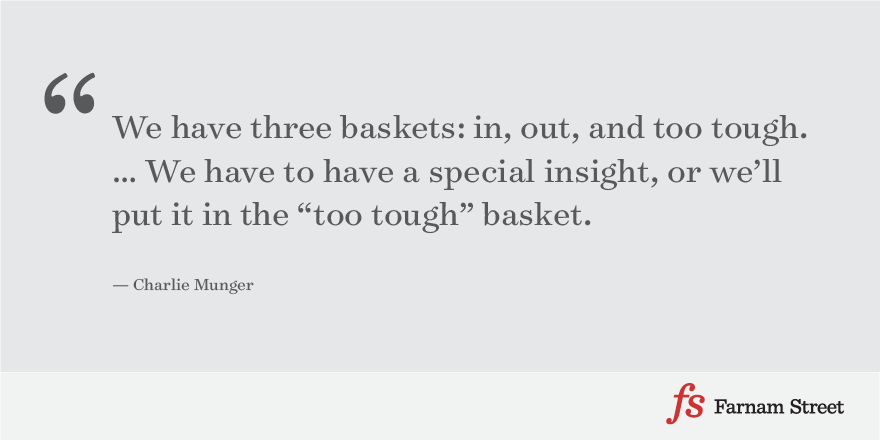
There is a compelling advantage in life to be found in exploiting unrecognized simplicities, something Peter Thiel tries to tease out in interviews. Essential to recognizing simplicity is scheduling time to think.
Part of simplicity is filtering.
William James said: “The art of being wise is the art of knowing what to overlook.” And there are no truer words that have been spoken.
In Arthur Conan Doyle’s The Reigate Puzzle, Sherlock Holmes says: “It is of the highest importance in the art of detection to be able to recognize, out of a number of facts, which are incidental and which vital.”
And part of filtering is understanding what you know and what you don’t know, that is, understanding your circle of competence.
In an interview with Jason Zweig, Munger said:
Confucius said that real knowledge is knowing the extent of one’s ignorance. Aristotle and Socrates said the same thing. Is it a skill that can be taught or learned? It probably can, if you have enough of a stake riding on the outcome. Some people are extraordinarily good at knowing the limits of their knowledge, because they have to be. Think of somebody who’s been a professional tightrope walker for 20 years—and has survived. He couldn’t survive as a tightrope walker for 20 years unless he knows exactly what he knows and what he doesn’t know. He’s worked so hard at it, because he knows if he gets it wrong he won’t survive. The survivors know.
Another time he offered:
Part of that [having uncommon sense], I think, is being able to tune out folly, as distinguished from recognizing wisdom. You’ve got whole categories of things you just bat away so your brain isn’t cluttered with them. That way, you’re better able to pick up a few sensible things to do.
Warren Buffett, the CEO of Berkshire Hathaway agrees:
Yeah, we don’t consider many stupid things. I mean, we get rid of ’em fast.. Just getting rid of the nonsense — just figuring out that if people call you and say, “I’ve got this great, wonderful idea”, you don’t spend 10 minutes once you know in the first sentence that it isn’t a great, wonderful idea… Don’t be polite and go through the whole process.
And Bevelin, writing in Seeking Wisdom, offers:
Often we try to get too much information, including misinformation, or information of no use to explain or predict. We also focus on details and what’s irrelevant or unknowable and overlook the obvious truths. Dealing with what’s important forces us to prioritize. There are often just a few actions that produce most of what we are trying to achieve. There are only a few decisions of real importance.
More information doesn’t equal more knowledge or better decisions. And remember that today we not only have access to more information, but also misinformation.
And the harder we work at something the more confident we become.
It’s worth pausing to reflect on three things at this point: 1) understanding and seeking simplicity; 2) dealing with the easy problems first; and 3) honing your skills by learning what to overlook and getting rid of bad ideas quickly (how many organizations do that!?)… this goes hand in hand with understanding your circle of competence.
Copyright © Farnam Street





